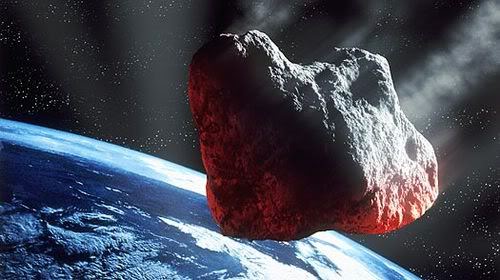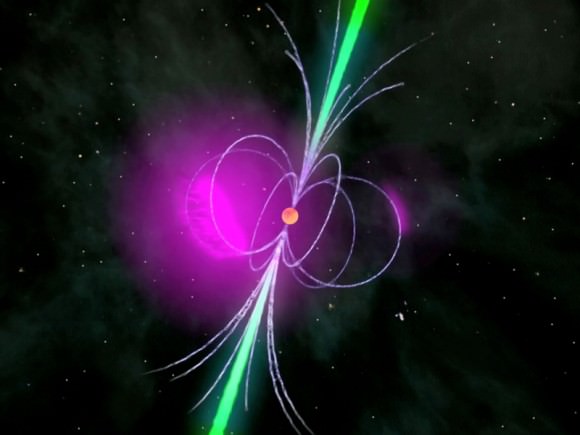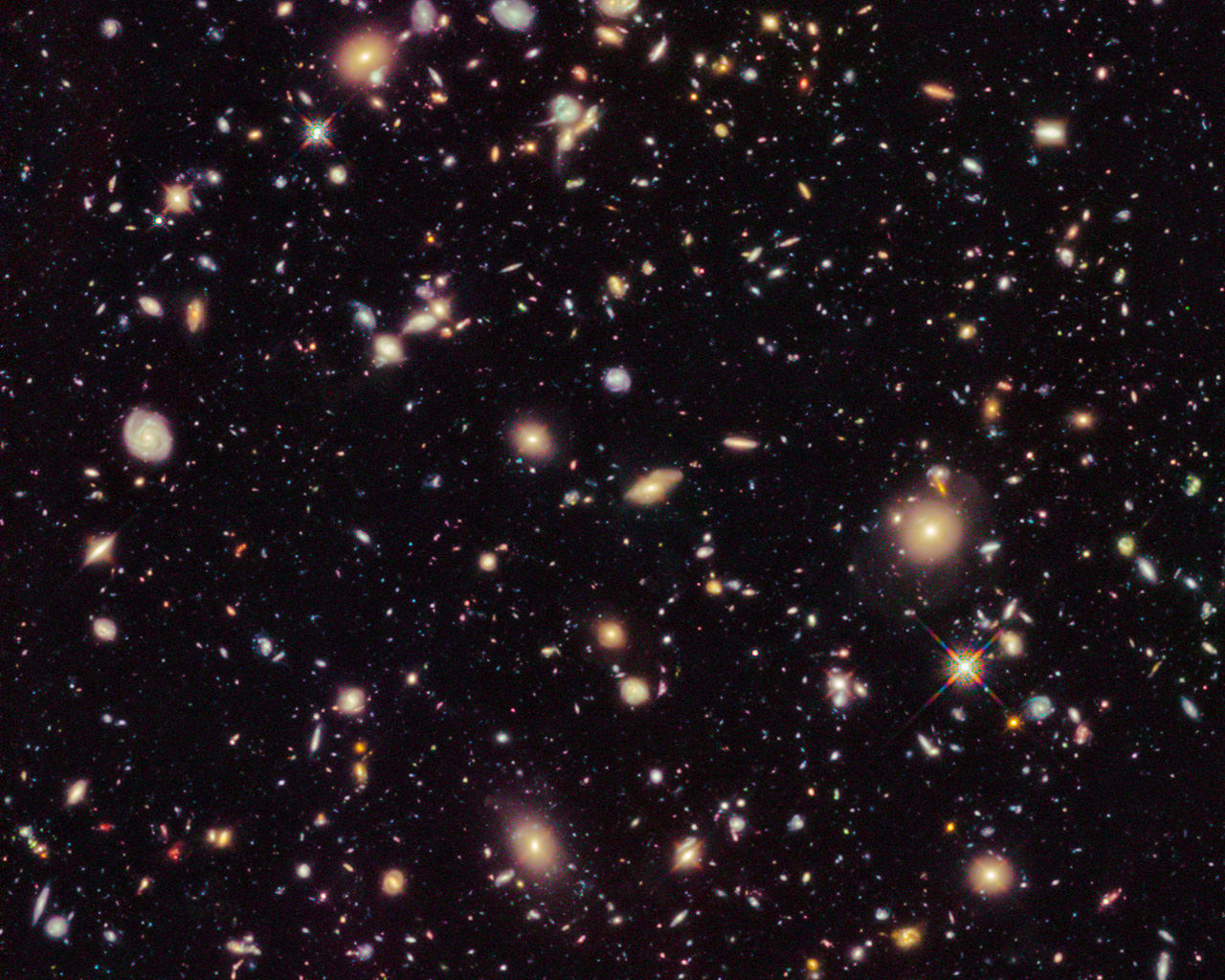The first article in a series where the well-known "Fermi paradox" is studied in detail - the absence of visible traces of the activities of alien civilizations, which should have settled throughout the Universe over billions of years of its development

“One of the main topics we have focused on is the concept of existential risk and the idea of the likelihood of human extinction,” wrote Andrew Snyder-Beatty in The Great Filter , published in Ars Technica. The material told about the discovery of the exoplanet Kepler-186f, located in the " habitable zone ".
The " Great Filter " is an answer to the question of why we still have not seen signs of activity of alien civilizations. The “Great Filter” solves the same questions as the Drake equation , which determines the probability of contacting an extraterrestrial civilization, and the Fermi paradox, which asks where are all civilizations.
Simply put, the idea is as follows. If civilization is constantly expanding (especially at such a rate of technological progress that we are experiencing today), then during the lifetime of the Universe, artificial processes would have to appear that we could see through telescopes. Even if we accept the limitation of maximum speed in the form of the speed of light. Perhaps something prevents these civilizations from expressing themselves.
Here are some of the filter options, both from Snyder-Beatty and from the man who first coined the name "great filter" in 1996, Robin Hanson.
Rare Earth hypothesis
Maybe the Earth is alone in the universe. Someone suggests that life is a relatively frequent occurrence, since it appeared here. Snyder-Beatty points to observer bias that complicates this analysis. Since the sample size is limited to only one planet, it is difficult to estimate the likelihood of life emerging. It may turn out that there is no one besides us. In a sense, this thought can be reassuring, because then there should not be a catastrophe that overtakes all civilizations.

An asteroid flying towards Earth as seen by the artist
Advanced civilizations find it difficult to arise
Hanson doesn't believe it. The first step is to move from more or less intelligent mammals to the capabilities of modern humans. The second step is from the capabilities of modern man to advanced civilizations. The first step took several million years. "If you destroy all people on Earth but leave life, intelligence will reappear quickly enough." Some of the filter steps leading to this event may take longer - including the emergence of multicellular organisms and the brain. Each step can take about a billion years.
Berserker Scenario
In this scenario, powerful aliens are secretly waiting for signs of alien intelligence to destroy its carriers. Hanson believes that then several similar civilizations could appear that would try to destroy each other.
Natural processes mask the presence of extraterrestrial life
Perhaps some voluminous natural processes occurring in space mask the activities of aliens. Hanson thinks this is unlikely - it would be a "surprising coincidence" if advanced technologies, from pulsars to dark matter, were responsible for all the astronomical phenomena that we explain by natural processes.

Gamma ray pulsar as seen by the artist. Gamma rays are purple here, and radio waves are green.
Natural disaster
There are indeed certain risks for the inhabitants of the Earth. One blow of an asteroid, a stream of radiation from a nearby supernova, a sufficiently large volcano - all this can destroy both civilization and life in general. “It is generally accepted that we have already experienced such disasters. And that the destruction of all life completely and forever is unlikely. “If people remain alive, it will take 10,000 years for them to return to civilization, which is just an instant,” said Hanson. Such events are statistically rare. “It's unlikely that one of these events will happen in the next 100 or 300 years,” said Snyder-Beatty.
Fundamental technology destroying civilization
Here you can argue as much as you like. Climate change, for example, could be a catalyst - although it would be strange if all civilizations faced the same political problems, Snyder-Beatty said. A more general opportunity is the emergence of artificial intelligence or distributed biotechnology that reproduces itself. Hanson points out that such technologies also have limitations - in this case, the robots themselves could begin to explore space, leaving traces of the existence of civilizations.
Decision
Hanson says our civilization needs to focus on areas that we can control. We need to make a list of things that can kill us - albeit purely in theory - and work with them.
However, the question of the absence of signs of other civilizations remains open.
Are intelligent civilizations doomed?
There are many solutions to the Fermi paradox. Perhaps there are not so many aliens. We may be too far apart. Perhaps they just do not want to talk to us, because we are disgusting to them. We may be living in a space zoo.
It is possible that we are the first intelligent civilization to appear in the entire universe. I never liked this idea. If we are the best that the Universe has been capable of in billions of years, I will have to seriously change my expectations.
There is another theory, although you may not like it - the Great Filter, which prevents intelligent civilizations from forming, and resembles something that came from the works of Philip Dick.
Think about the long sequence of steps it took to bring the Earth from its original state to its current state. A planet with the right combination of atoms had to have liquid water long enough for molecules to form, which somehow had to start reproducing and eventually become the first organisms. They then turned into multicellular organisms that learned sexual reproduction, as a result of evolution began to use tools, and eventually became intelligent life - in parallel, having survived a couple of extinctions on a planetary scale. And at some point in the future, this intelligent life continues to exist and colonizes the entire galaxy.
Humanity has gone through the previous steps, therefore, they are not impossible. Very highly unlikely, perhaps, but not impossible. No laws of physics we know prevent us from building machines in the future that will help us colonize the entire galaxy. Beautiful cars with flashing lights - perhaps using the flesh of future generations of people. And if we succeed, so will any other race.
If the Universe has existed for about 14 billion years, and we managed to do all this in a small fraction of this period, then there was a lot of time for such achievements. And yet - no aliens. Maybe the Great Filter is still waiting for us. And no matter how we try to go beyond the solar system, something will stop us.

Hubble Ultra Deep Field 2012 – Hubble Ultra Deep Field . 9 12 , . , . ?
What might this Great Filter be? There are many ideas on this score. Perhaps all civilizations one day open up the most terrible weapons and self-destruct. They can develop virtual reality technology and decide to spend their time inside it. They can create exotic matter that destroys the entire planet. Or create robotic servants that eventually overthrow their masters in a planetary robocalypse. Perhaps someone creates a super-plague that destroys all life. Or civilization is destroying the environment and its ability to sustain life by clogging the oceans with plastic and the atmosphere with CO 2 , turning the planet into a pressure cooker. Or maybe they just watch too many reality shows and get dumb enough to forget how to eat and die.
And there is an obsession behind it all. If the Great Filter exists, it must cover 100% of civilizations. Because even if 1% of the aliens survive, they will be able to colonize the galaxy. But to this day we have not seen any aliens.
In the future, some destructive event of high probability may await us, which will occur shortly before we could become a space civilization. And there is no way we can predict or avoid it. The idea that all advanced civilizations are doomed is worrying.
Hopefully the Great Filter theory is wrong. And either we are just the first advanced civilization of the Milky Way, or we will guess what threatens us and avoid the catastrophe that destroyed all aliens in the galaxy.